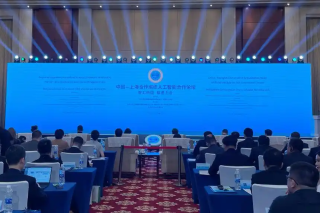Seven years on for Tianjin free trade zone
This year marks the 7th anniversary of the China (Tianjin) Pilot Free Trade Zone, the first of its kind in north China since it was approved by the State Council on April 21, 2015.
It has achieved fruitful results in reform and opening up improving its business climate by aligning closely with international norms in trade and investment.
The pilot zone has been spearheading deepened reforms, breaking new ground in opening up and bridging domestic and international markets for the port city, said Wang Xu, deputy mayor of Tianjin.
In the seven years, it yielded 502 successful practices in local reform, and 38 of them were applied nationwide, according to Shan Zefeng, head of the Binhai New Area.
Thanks to measures rolled out to reduce the procedures and length of time for enterprises to gain government approval, market entities grew substantially.
By the end of 2021, the market players in the zone amounted to 79,000. More than 4,000 are foreign-funded, with registered capital reaching one trillion yuan($154 billion).
Key sites including AIIB's world's first off-site functional center and Airbus A350 aircraft assembly and delivery center, as well as continuous expanding of the aerospace, medical and health industry clusters.
Major advances have been registered in financial innovation, empowering and gathering advantageous industries. A total of 115,000 new accounts have been opened in local and foreign currencies, and nearly $300 billion cross-border receipts and payments have been processed.
With measures in place, its Dongjiang Free Trade Zone has become the world's second- largest area for aircraft leasing.
Other highlighted industries in the zone also include bonded maintenance, automobile trade, biomedical, and e-commerce.

Copyright ©
Tianjin Municipal Government. All rights reserved. Presented by China Daily.
京ICP备13028878号-35



